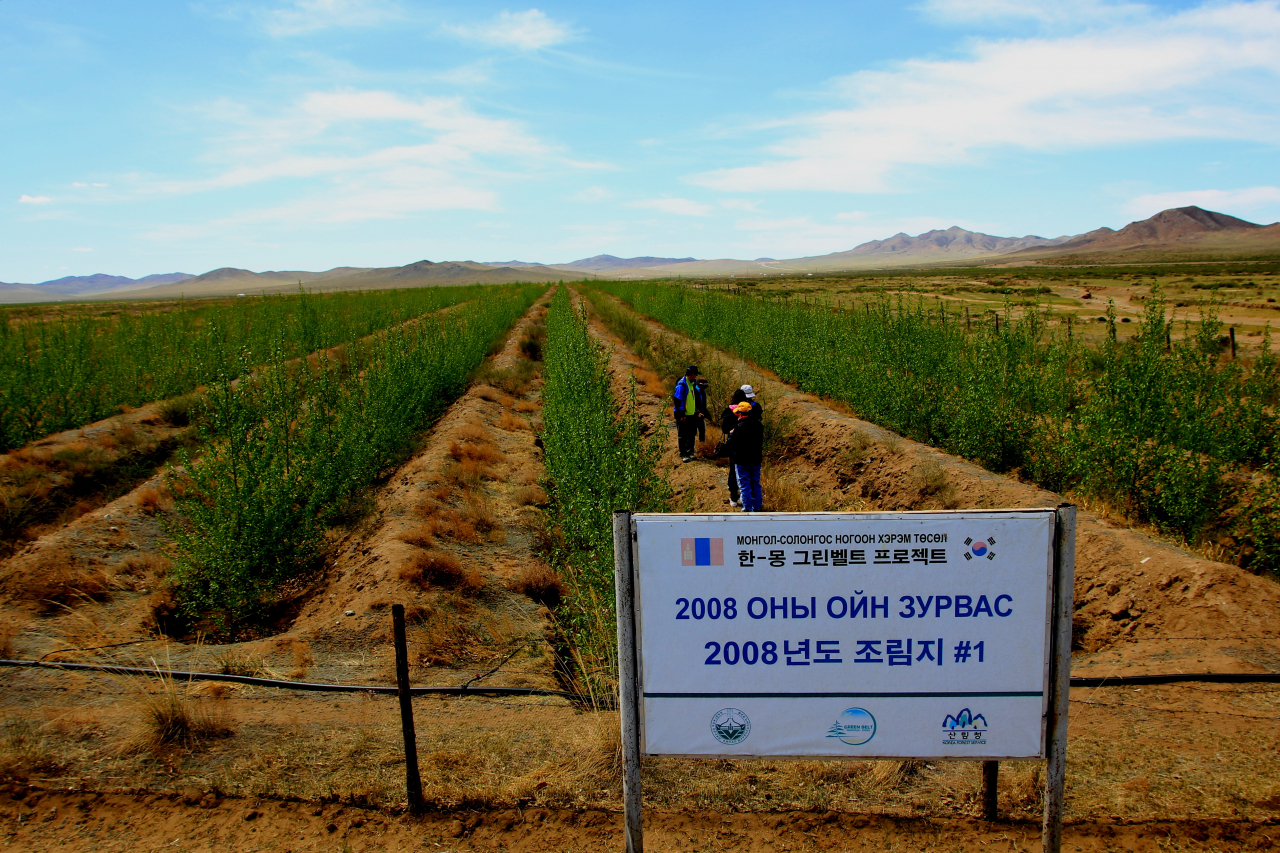
Korea and Mongolia have collaborated on the Greenbelt Plantation Project since 2006, aiming to combat desertification and yellow dust storms in Mongolia. The project began with a memorandum of understanding between the Korea Forest Service and Mongolia's Ministry of Environment and Tourism. Mongolia's desertification challenges, exacerbated by factors such as overgrazing and climate change, prompted the country to launch a greenbelt program in 2005. South Korea, having established diplomatic relations with Mongolia in 1990, joined the project in three phases, contributing expertise and resources to support reforestation efforts. During the first phase, which ran from 2007 to 2016, the project focused on creating forests to halt desertification, with Korean experts playing a pivotal role in implementing large-scale reforestation techniques. The initiative also included educational components, training thousands of Mongolians in reforestation techniques and emphasizing the importance of preventing desertification. In the second phase, from 2017 to 2021, the project expanded to establish Mongolia's first urban forest in Ulaanbaatar, addressing the city's severe air pollution and decreasing green spaces. The project culminated in September 2021, with the urban forest becoming a symbol of cooperation between Korea and Mongolia. Additionally, Mongolia announced the Billion Tree Movement, pledging to plant one billion trees by 2030 to combat climate change and desertification, with various actions and support mechanisms in place to ensure the project's success. Phase three, from 2022 to 2026, will focus on extensive forestry cooperation, including restoring areas damaged by wildfires and supporting the Billion Tree Movement. The Korea-Mongolia Greenbelt Plantation Project has been recognized as a successful cooperative venture, with plans to further enhance forestry cooperation between the two nations. The project team received top marks for project operation and management, and Korea's Korea Forest Service aims to strengthen capabilities in wildfire response, nursery and education programs, forest creation, and agroforestry in phase three.
